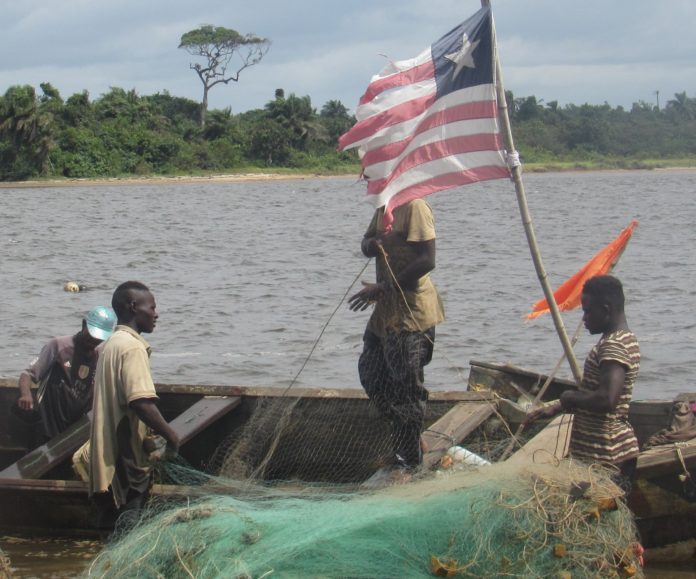The World Bank has approved new financing to improve Liberia’s fisheries sector management and enhance the livelihoods of targeted beneficiaries and increase Government revenues.
The Liberia Sustainable Management of Fisheries Project (LSMFP), funded by the International Development Association (IDA) in the amount of US$40 million ($20 million grant and $20 million credit), will improve conditions for fishermen and women, increase value addition for export, and help address economic vulnerability of the Liberian economy to climate change and vulnerability of food security.
According to a World Bank press release, the LSMFP will support the establishment of an industrial and an artisanal fish landing site at the Mesurado Pier in Monrovia, and other artisanal landing sites in Margibi, Maryland, Grand Bassa, Sinoe and Grand Kru counties.
This project will also support Aquaculture development and strengthen management and governance of the fisheries sector in Liberia, developing human and institutional capacity, and improving policies, strategies, institutional and legal frameworks.
“Given the huge potential of the fisheries sector in Liberia, this project is expected to have a transformational impact on livelihoods, but also in a sustainable way,” Dr. Khwima Nthara, World Bank Country Manager in Liberia said in a release.
This fisheries project will also finance the development and rehabilitation of the Klay hatchery in Bomi County as a suitable fish hatchery model and aquaculture research center equipped with a standard laboratory for conducting research on fish feed, fingerling production, testing water quality, and fish disease.
In addition, the project will support the establishment of Farmers Field School (FFS) and a model farmer scheme that will facilitate knowledge sharing among farmers and extension technicians.
“This project contributes to the provision of economic returns from market sales for both the government and fishermen, jobs for Liberians, livelihoods to the communities, and above all, food for the people of Liberia.
In all these expected outcomes, the center of focus will be building a climate resilience community and ensuring sustainability—ecological, economic, and social,” said Task Team Leader Fisseha Tessema Abissa.
Key project beneficiaries include fisheries communities, fish processors and sellers, and fish consumers. These include an extensive fishing community of over 11,000 fishers who directly support around 56,000 people using about 3,300 canoes. The Liberian population, in general, will also benefit from the project’s contribution to enhancing fish productivity, food security, and job creation, and expanding the economic base.
“This $40 million fisheries project presents a unique opportunity for at least 300,000 vulnerable indigenous low-income fisher folks; thereby increasing their daily earnings and strengthening food security for the greater population of Liberia through its climate-smart approach activities therein,” said Ms. Emma Metieh Glassco, Director-General, National Fisheries and Aquaculture Authority of Liberia.
Since the start of the COVID-19 pandemic, the World Bank Group has committed over $125 billion to fight the health, economic, and social impacts of the pandemic, the fastest and largest crisis response in its history.
The financing is helping more than 100 countries strengthen pandemic preparedness, protect the poor and jobs, and jump-start a climate-friendly recovery. The Bank is also providing $12 billion to help low- and middle-income countries purchase and distribute COVID-19 vaccines, tests, and treatments.























Comments are closed.